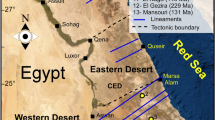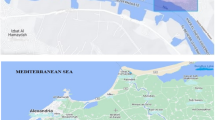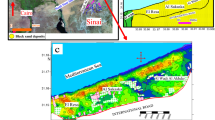Abstract
IN two earlier communications on this subject1,2 I directed attention to the bearing on geological time and geochemical problems of Clarke and Steiger's determination of lead in a composite sample of 329 igneous rocks. The amount of lead found by these analysts was 7.5 × 10â6 gm. per gm. Adopting this result as the best then available, and combining it with other data, such as tho uranium and thorium contents of rocks and the atomic weights of lead from different sources, I pointed out that the following inferences could bo drawn:
This is a preview of subscription content, access via your institution
Access options
Subscribe to this journal
Receive 51 print issues and online access
$199.00 per year
only $3.90 per issue
Buy this article
- Purchase on Springer Link
- Instant access to full article PDF
Prices may be subject to local taxes which are calculated during checkout
Similar content being viewed by others
References
NATURE, 117, 482, April 3, 1926.
NATURE, 124, 477, Sept. 28. 1929.
Trans. Nat. Hist. Soc., Northumberland, Durham, and Newcastle-upon-Tyne, p. 32; 1930.
Author information
Authors and Affiliations
Rights and permissions
About this article
Cite this article
HOLMES, A. Lead Content of Rocks. Nature 128, 1039–1040 (1931). https://doi.org/10.1038/1281039a0
Issue Date:
DOI: https://doi.org/10.1038/1281039a0
Comments
By submitting a comment you agree to abide by our Terms and Community Guidelines. If you find something abusive or that does not comply with our terms or guidelines please flag it as inappropriate.



